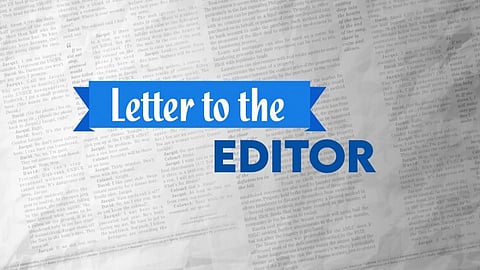
- NEWS
- the EDIT
- COMMENTARY
- BUSINESS
- LIFE
- SHOW
- ACTION
- GLOBAL GOALS
- SNAPS
- DYARYO TIRADA
- MORE

Dear Editor,
Since the implementation of the partylist system in the 1998 elections, it has become somewhat of a backdoor pass into the House of Representatives.
While the system was designed to ensure that every sector is represented in government, it presented challenges that warrant careful consideration.
Over the years, the partylist system — which started out as an avenue to ensure that marginalized groups, specifically labor, women, youth and indigenous peoples were given a voice — continues to draw criticism due to the proliferation of small factional parties that lack the resources and experience to govern effectively.
What comes to mind is the filing of Certificates of Candidacy (CoC) for the 2025 midterm polls where some personalities — however clean their intentions — have become objects of scrutiny.
Take the case of the aspirant Vendors Partylist led by internet personality and food entrepreneur Deo Jarito Balbuena, famously known as “Diwata.” While the internet sensation — the partylist group’s fourth nominee — promises they will push vendors’ causes, it still leaves an unsettling taste in the mouth, so to speak.
On the surface, the food stall owner’s candidacy presents a compelling narrative as his first-hand experience navigating the challenges faced by vendors — securing permits, finding affordable stalls, ensuring food safety — positions him to advocate effectively for their needs. Voters struggling to make ends meet might find his promise to establish a cooperative to empower vendors particularly appealing.
After all, who better would understand the plight of vendors than someone who has walked the path?
However, this underscores a potential weakness of the partylist system — the risk of narrow representation. While his focus on vendor concerns is understandable, a representative solely focused on a single sector might struggle to address the broader needs of the constituency.
Issues like education, healthcare, and infrastructure development, while crucial to all citizens, might receive less attention from a representative laser-focused on vendor issues.
Also, partylist representatives often lack the resources and experience of their counterparts from the established political parties, which can hinder their ability to navigate the complexities of lawmaking and secure the passage of beneficial legislation.
And Diwata — while undoubtedly passionate about his cause — might lack the legislative know-how to effectively translate his vision to concrete policies.
Another “conspiracy” that may arise is the food stall owner may become a puppet of a much bigger group or personalities seeking a seat in Congress to advance their own political and personal agenda.
The solution lies in striking a balance. Partylist systems undoubtedly play a vital role in ensuring diverse representation in government. However, it is crucial to ensure that these representatives possess the necessary skills and experience to be effective lawmakers.
Perhaps this could involve providing capacity-building programs for partylist representatives or establishing mentorship opportunities with seasoned legislators.
The success of the representatives elected through the partylist system hinges on their ability to transcend narrow sectoral interests and embrace a broader vision for their constituents.
They must become a boon not just for their base, but for the collective good of the community they represent, and not a bane that will sow discord and uncertainty for the parties concerned.
Fortunato delos Santos
fds_2001@yahoo.com
